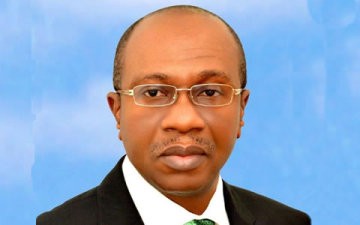Economy
Experts predict rise in inflation

By ADEBAYO OBAJEMU
Financial experts, including the Economic Intelligence Group have predicted a slight increase in inflation rate for the month of March. The election year always turns out to be a challenge for any economy, especially, in developing ones, where political uncertainties often define much of economic outcomes. Now, that the election has come and gone, experts still predict a daunting inflationary challenge for the economy.
According to The Economic Intelligence Group, Inflation rate for the month of February dipped to 11.31%, down from 11.37% recorded in the prior month, following moderation in both the food and core indices. On a Month on Month basis, headline inflation dipped by 1bps to 0.73%, following a faster decline in core inflation by 15bps MoM to 0.65%.
Notably, the declines were evident across major sub-indices – transport (-3ps), health (-3bps), clothing (-2bps), furnishing (-3bps), while the HWEGF rose 2bps. Food on the other hand only dipped by 1bps to 0.82%) stemming from a decline in processed food (-171bps to 0.82%), as farm produce ticked up in the month (+15bps to 0.82%).
The month of March may have proved daunting post election. Though the National Bureau of Statistics (NBS) says it will release inflation figure for March 2019 on April 15, based on the Data Release Calendar available on the Bureau’s website, the Economic Intelligence Group forecasts March 2019 inflation rate(year- on- year) to rise mildly to 11.37 percent from 12.31 percent witnessed in February.
The drivers for this forecast on rising inflation inflation in March are pressures on food prices. Last month witnessed a rise in prices of food and non alcoholic beverages, which is the largest component in the consumption with a weight of 51.8 percent.
Prices of major staple food items such as Irish potato and fresh tomatoes itched upwards fired by the residual effects of farmer/ herder clash.
For the month of March, we expect further decline in inflation to 11.25% YoY as both core and food inflation firmed further. While we still expect diesel and kerosene prices to remain elevated relative to the prior month, lower PMS prices (-11% YoY) guides our view of a further moderation in core inflation. Likewise, with dry season and cassava harvest expected during the month, we see further moderation in food inflation compared to the prior year.
Nigeria’s annual inflation rate dropped to 11.31 percent in February 2019 from 11.37 percent in the previous month, as prices rose at a slower pace for all categories. Inflation Rate in Nigeria averaged 12.46 percent from 1996 until 2019, reaching an all time high of 47.56 percent in January of 1996 and a record low of -2.49 percent in January of 2000
Ambrose Omordion, chief executive of Investa said ” post election is always stressful for the economy, there was so much pressures of prices of food items, occasioned by herder/ farmer clashes and the insecurities in parts of the North, which have exacerbated post election. ”
Dr. Olufemi Omoyele, a financial analyst and university don echoed Omordion’s perspective. He told this newspaper that “annual core inflation, which excludes price of volatile agricultural products, edged down to 9.8 percent in February from 9.9 percent in January. But after the election, we are witnessing a resurgence of insecurity, and this will further put much stress or pressure on food prices.”
Omordion said processed foods like milk and beverages saw slight price increases fired by reversal of price discounts following weeks of discount sales.



